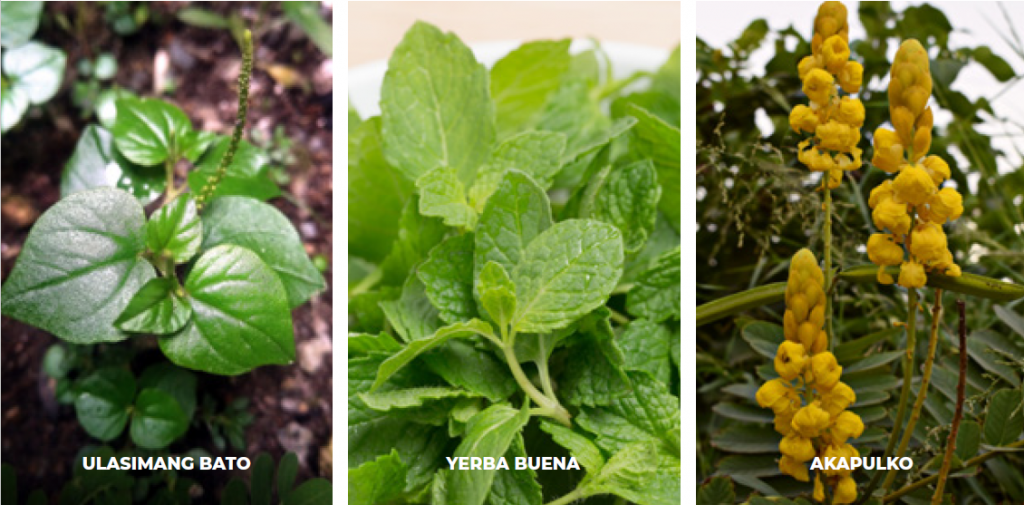Lagundi and Sambong have become benchmarks for the scientific and commercial success of herbal medicines in the Philippines. In the wake of their success, the National Integrated Research Program on
Medicinal Plants (NIRPROMP) at the National Institutes of Health – Institute of Herbal Medicine (NIH-IHM), University of the Philippines Manila, is gearing up to introduce three more herbal medicines to the market. Ulasimang Bato, Yerba Buena, and Akapulko, initially part of the 10 herbal medicines or halamang gamot approved by the Department of Health (DOH), are now ready to be launched.
Ulasimang Bato Tablet: A Breakthrough for Gout
Gout has become a substantial health concern, affecting 1.6% of Filipinos. In response, NIRPROMP introduced the Ulasimang Bato or “pansit-pansitan” tablet, which offers itself as an alternative to conventional treatments like Allopurinol.
Clinical trials have showcased its comparable efficacy to Allopurinol without the usual rebound effect, and the absence of any adverse events such as gastric pain, vomiting, and dizziness.
With the approval of the Philippine Food and Drug Administration (FDA) secured and the securing of a granted patent from IPOPHL, the Ulasimang Bato tablet is a natural and effective
alternative for Filipinos, bringing pain relief to those grappling with gout.
Yerba Buena Tablets: Nature’s Analgesic
Yerba Buena, also known as spearmint, is traditionally made into tea. It was used as a remedy for headaches, toothaches, arthritis, and dysmenorrhea by our ancestors, and at present, its tablets have undergone rigorous testing for safety and efficacy. Recent multicellular clinical trials reveal promising results, surpassing paracetamol in efficacy within 30 minutes. The tablet’s acceptability based on taste, odor, and ease of swallowing adds to its appeal.
Positioning itself as an alternative medicinal accessibility, Yerba Buena tablets are on the brink of entering into the Philippine market.
Akapulko: An indigenous Answer to Fungal Infections
Traditionally, the juice extracted from Akapulko leaves was applied to treat fungal infections. The
present evolution of this remedy into a cream has demonstrated its efficacy, rivaling synthetic
antifungal agents for the treatment of superficial skin infections.
Akapulko cream is not only effective but is also surprisingly mild with rare side effects. Extensive
clinical trials, systematic reviews, and Phase 1-3 clinical trials conducted by NIRPROMP affirm
Akapulko’s effectiveness and affordability as a compelling alternative for fungal infections,
particularly against conditions like tinea versicolor.

Collaborative Strides Forward
The progress of herbal medicine marked by ongoing research and evidence-based use continues to support the growth of natural products that support farming communities and the pharmaceutical industry. As these herbal solutions gain traction, the Philippines moves towards transformative healthcare rooted in traditional wisdom and offering effective, affordable, and accessible locally-developed products.
These featured herbal medicines underscore the strength of collaborative initiatives, emphasizing
the significance of addressing prevalent health concerns. This achievement marks a substantial
stride in the pursuit of holistic healthcare solutions for Filipinos, contributing to the protection of indigenous knowledge, biodiversity, and bridging the gap between tradition and modern healthcare practices.
January R. Kanindot